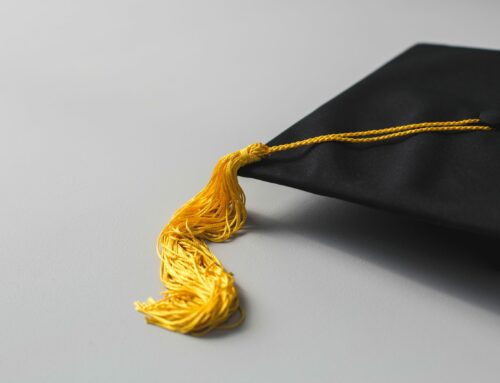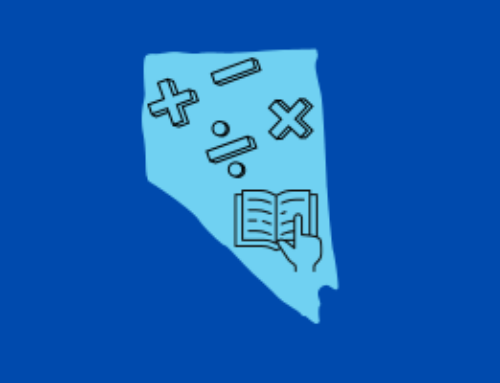To give voters more information on the perspectives of State Board of Education, Clark County School District, and Washoe County School District Board candidates, Opportunity 180 introduced the Question of the Week to accompany its Primary Election Voter Guide. Each week, candidates will have the option to respond to a question emailed to all candidates for whom we have contact information. Participation is voluntary, and responses are published as is. Below are the responses from candidates to this week’s question.
This week’s question is: What is one book you think every student should read before they graduate high school and why?
State Board of Education – District 2
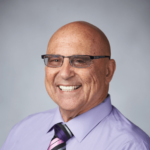 Dr. Paul Davis
Dr. Paul Davis
A: The book I would recommend would be The Martian Chronicles by Rad Bradbury.
The book raises deep philosophical questions about existence, civilization, and what it means to be human. Indeed, many of the book’s themes and concerns remain relevant today. There are issues like environmental degradation, the impact of technologyand the search for meaning in a rapidly changing world continue to be debated in our world today.
State Board of Education – District 3
René Cantú
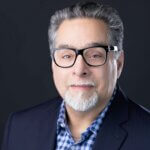
A: It is very difficult to narrow which book to read before graduation. I believe in reading avidly and voraciously both what you agree with and what is outside your comfort zone. The most formative book (or set of books) that influenced me deeply as a young person was the World Book Encyclopedia my family bought when we were in grade school. I found endless hours of stimulation in reading about anything I could think of. I guess the encyclopedia was then what Google is now without as much garbage. The encyclopedia opened the world up to me and deeply implanted my love of learning. Here are other books I enjoyed reading when I was in high school, long before there was such a push to limit what people read: Slaughterhouse Five by Kurt Vonnegut, The Biography of Malcolm X by Alex Haley and Malcolm X, 1984 by George Orwell, and A Clockwork Orange by Anthony Burgess. There are so many books that I love, but those are a few that blew my mind when I was in high school.
Clark County School District – District A
Emily Stevens
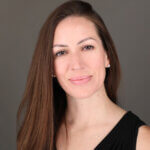 A: I actually have three! But if I had to choose one, I would say “The Four Agreements” written by don Miguel Ruiz. This is an easy read for a teenager, but it gives four life principles that anyone can live by: 1) Be impeccable with your word; 2) Don’t take anything personally; 3) Don’t make assumptions; 4) Always do your best. This book serves as a great guide, especially for young people, on how they don’t have to limit themselves or their thinking, but rather implement simple practices to lead them toward freedom and happiness.
A: I actually have three! But if I had to choose one, I would say “The Four Agreements” written by don Miguel Ruiz. This is an easy read for a teenager, but it gives four life principles that anyone can live by: 1) Be impeccable with your word; 2) Don’t take anything personally; 3) Don’t make assumptions; 4) Always do your best. This book serves as a great guide, especially for young people, on how they don’t have to limit themselves or their thinking, but rather implement simple practices to lead them toward freedom and happiness.
If I could add the other 2 books to the list, the next would be “The Psychology of Money” by Morgan Housel and the third book I’d recommend would be “Talk Like Ted” by Carmine Gallo. When young people go out into the world, they often have little to no experience with money management. “The Psychology of Money” does a great job of explaining what money can do for you, how you can make it work for you, and why it’s so important to do so. It is also an easy read.
“Talk Like Ted” is a great book and speaks to how you can give strong presentations. I have noticed that many of our young people today struggle to be effective communicators (this is likely due to technology, phones, texting, etc.). I have learned over the years that you can be the smartest person in the room, but if you cannot communicate effectively, your message and the knowledge you hope to share will often not be received. You don’t have to be a public speaker or presenter to get benefit from this book. There are so many tips, practices and principles that anyone can use.
Clark County School District – District B
 Russ Burns
Russ Burns
A: This is too difficult of a question, because I am a book dragon and consume so many wonderful books.
I suppose I will list a nonfiction and fiction book, with maybe a short list of honorable mentions (in no particular order).
Nonfiction:
For nonfiction I am choosing to go with a more modern title.
“I Never Thought Of It That Way,” by Monica Guzman
Students should read “I Never Thought of It That Way” by Monica Guzmán because it offers crucial lessons on curiosity, empathy, and communication. In today’s polarized world, the ability to engage in meaningful dialogue with people holding opposing views is invaluable. Guzmán provides practical strategies for initiating and maintaining these conversations, fostering an environment of mutual understanding and respect. By sharing her personal experiences, she adds a relatable view to the book, encouraging readers to reflect on their biases and preconceptions. Additionally, the book promotes critical thinking and encourages students to actively engage with diverse perspectives, preparing them to address societal challenges they may encounter in the future. Reading this book equips young individuals with the skills needed for empathetic interaction, making it a must-read for personal and societal growth.
Honorable mentions:
“How to Win Friends, and Influence People,” by Dale Carnegie
“The Republic,” by Plato
“How to Be A (Young) Antiracist,” by Ibram X. Kendi
“Interesting Facts For Curious Minds: 1572 Random But Mind-Blowing Facts About History, Science, Pop Culture And Everything In Between,” by Jordan Moore
Fiction:
For the fiction title I am going with one of my personal favorite fiction stories (which I do not read a lot of fiction).
“Catch 22,” by Joseph Heller
Students should read “Catch-22” by Joseph Heller for not just the story but for so much more. The book offers students a unique and intellectually stimulating experience. The novel’s exploration of the absurdities inherent in military bureaucracy, with its illogical rules and regulations trapping soldiers in paradoxical situations, challenges students to think critically about the nature of authority and war (applicable to school, work, life in general). Heller’s masterful use of satire not only provides a sharp tool for social commentary and criticism, but also engages students in understanding complex themes such as greed, corruption, and the loss of humanity from a very human point of view. By delving into the novel, students gain insight into human nature and morality, all while appreciating the power of literary devices to convey profound messages, criticism, and commentary. This blend of critical analysis, appreciation of satire, and exploration of human conditions makes “Catch-22” an invaluable read for developing a well-rounded perspective on the complexities of life and society (and a chuckle or two).
Honorable mentions:
“Fahrenheit 451,” by Ray Bradbury
“To Kill a Mockingbird,” by Harper Lee
“Passing,’ by Nella Larsen
“All Quiet on the Western Front,” by Erich Maria Remarque
Washoe County School District – District G

Jacqlyn Di Carlo
A: Every student should read the Bible before graduating from high school. Mainly because our country was founded on Judeo-Christian values, and it is a historical document rich in history and life lessons to take regardless of religious background.
